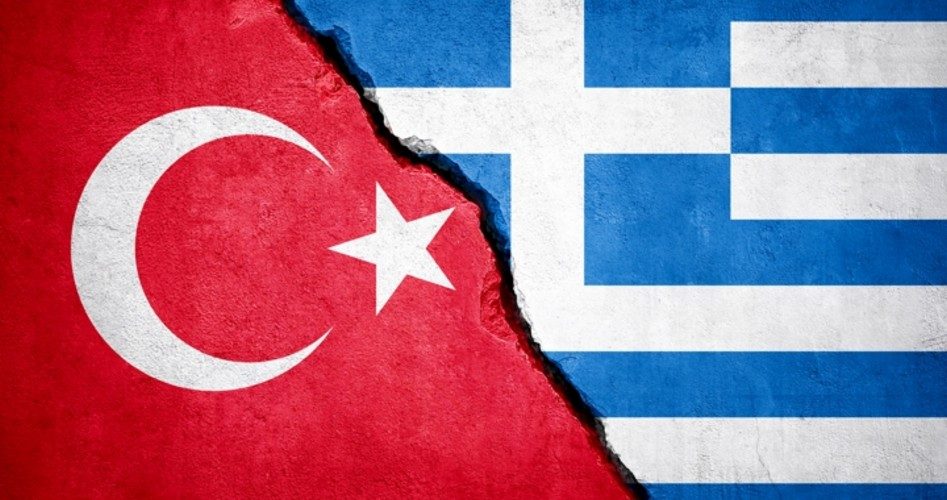
A small contingent of about 10 Turkish special forces crossed into Greek territory on May 22, attached a small Turkish flag to a tree, and rejected Greek demands to withdraw. The number of Turkish troops in the area soon grew to 35. The dispute over the territory stems from a change in the course of the Evros River, which marks the border between Greece to the west and Turkey to the east. This shift has left land that is technically part of Greece to the river’s east, and land that is technically part of Turkey to its west.
Though the area in dispute is tiny, only about 1.6 hectares (a little under four acres), when a nation does not defend its sovereign borders it can set a bad precedent. This is why nations jealously defend their territory.
There is much more to this dispute between Greece and Turkey than control over four acres of land, however. The larger issue is not that the presence of 35 Turkish troops on this small piece of land separated from the rest of Greece by a river constitutes an “invasion” as it does that Greece finds it necessary to ward off a more threatening invasion — an invasion by Mideast migrants.
The Greek government said that the Turkish troops moved into the area as a response to a Greek army survey of the site for plans to build additional border fences. Though the small contingent of Turkish troops were unlikely to invade the rest of Greece, they were interfering with Greek efforts to defend itself against the more serous migrant invasion. Greece wants to expand the border fence in order to avoid a repeat of what happened in March when thousands of migrants gathered at the border trying to cross into Greece.
The New American observed on March 16 observed that Turkish president Recep Tayyip Erdogan has not only been following through on a threat to allow Mideast migrants to flood toward Europe, but his troops have actually fired tear gas at Greek police defending their own land.
However, noted the report, Greece isn’t backing down, but is doubling down and fortifying its border all the more.
“This now includes not just an ongoing militarized response on the Greek side to keep thousands from crossing illegally, but reportedly now erecting huge concrete blocks at key land crossings,” noted Zero Hedge. “The completely shuttered border crossings with Turkey are beginning to resemble war zones akin to WWI trenches and fortifications.”
“‘Greece on Friday placed 5-foot concrete blocks at its Kastanies border crossing with Turkey to stop the entry of asylum seekers,’” Zero Hedge continued, citing Turkey’s Anadolu Agency.
There is little danger that the 35 Turkish troops occupying four acres of worthless Greek flood plain on the Turkish side of the Evros River will invade Athens. The real threat is that Turkey is deliberately interfering with Greek efforts to keep out Mideast migrants who regard Greece as only a gateway to wealthy, welfare-state nations such as Germany and Sweden.
Image: ffikretow/iStock/Getty Images Plus
Warren Mass has served The New American since its launch in 1985 in several capacities, including marketing, editing, and writing. Since retiring from the staff several years ago, he has been a regular contributor to the magazine. Warren writes from Texas and can be reached at [email protected].
Related articles:
Greece Battles Migrant Wave From Turkey With Giant Concrete Blocks on Border
Blackmail Migration? Turkish Government Lets Mideast Illegals Flood Europe
Trump Places Sanctions on Turkey in Response to Invasion of Northern Syria



